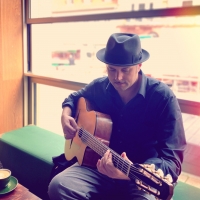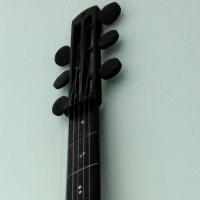DjangoBooks.com
Welcome to our Community!
Categories
- 20K All Categories
- 1.1K General
- 485 Welcome
- 60 Archtop Eddy's Corner
- 147 CD, DVD, and Concert Reviews
- 385 FAQ
- 26 Gypsy Jazz Italia
- 27 Photos
- 209 Gypsy Picking
- 21 Unaccompanied Django
- 15 Pearl Django Play-Along Vol.1
- 17 Gypsy Fire
- 45 Gypsy Rhythm
- 1.4K Gypsy Jazz University - Get Educated
- 131 Gypsy Jazz 101
- 231 Repertoire
- 228 History
- 709 Technique
- 51 Licks and Patterns
- 6 Daniel Givone Manouche Guitare Method Users Group
- 20 Eddie Lang Club
- 1.3K Gypsy Jazz Gear
- 816 Guitars, Strings, Picks, Amps, Pickups and Other Accessories
- 465 Classifieds
- 52 Recording
- 63 Other Instruments
- 18 Violin
- 5 Mandolin
- 22 Accordion
- 7 Bass
- 11 Woodwinds
- 351 Gypsy Jazz Events
- 144 North America
- 112 Europe
- 95 International
In this Discussion
Anki spaced repetition flashcards for Gypsy Jazz
 Azazzell
CanadaNew
Azazzell
CanadaNew
I've been playing around with Anki filtered decks ( https://apps.ankiweb.net/#downloads) for studying licks in different keys. Anybody else using spaced repetition flashcards ?













Comments
I used them leading up to Django in June to help learn and retain repertoire: heads and chords to about 40 tunes. It worked great for that!
I need to watch the video on a larger screen, the control buttons are hard to read on the phone screen.
So do you sort of grade yourself once it shows you the card?
How does it know at which frequency it shows a card?
Do you have the same deck for everything, heads, chord charts, licks and phrases etc?
Something I just thought of doing is to record licks and phrases that I want to make part of my playing and listen to them whenever I can and am away from the guitar. Did anyone do that?
Hi @Buco ,
I haven't used @Azazzell 's deck (I'm getting the error on import: 500: specified file not found in archive) but I have used Anki frequently over the last 15 years or so for a wide variety of topics. It is remarkably useful for committing things to memory. I have not used it for music, beyond music theory topics.
You do grade yourself on how difficult a card was - and the frequency it shows it directly determined from that. There is a large body of work (and discussion) around the algorithm(s) to maximize retention, but in short: You will be presented with a card at the time it is becoming hard to remember, which maximizes memorization. So at first you will see it every 10 minutes or so (daily), then every few days, then longer and longer. I have some cards which are presented on schedules measured in years. You want the cards to feel just a little out of reach.
Regarding one deck for everything - heads, charts, licks, phrases; vs a different deck for each. This is personal. I believe the consensus is one large deck for everything is the best for learning, but that is not maintainable for me. I do a different deck for each topic (mathematics, languages, engineering, music etc..).
If I were to use this for GJ I would put heads and vocab (phrases) into the same deck. But music theory topics would be a different deck. I would design it so some decks can be studied away-from-guitar, and some for guitar-in-hand.
As far as your idea to internalize phrases by listening to them away from the guitar, I have done that with a MP3 player loaded with only clips of melodies or phrases. This is great for passive listening. You could also make an anki deck for this purpose if you want something more than passive listening. Brainstorming: First clip the licks that you want and put each one in a card. Depending on what you wish to accomplish, you might:
You can also set the app up to do extra study without affecting the card's position in the scheduling algorithm, so you could use these cards to listen when you have less attention bandwidth (similar to the mp3 player approach). But if you have clipped them all as MP3s already, I would load them on my phone and make a playlist for more passive-listening sessions.
Away-from-guitar musician study that is great for anki would be stuff like: name the notes in <X> major triad; name the intervals in an augmented chord, visualize the first inversion drop-2 on strings 2345, what chords are suggested by the notes X Y Z J for each note a bass player could be playing, tap out the following rhythm, etc..
@Azazzell thank you for making the deck. It seems like something is missing from the .zip as I can't import it. Could you try to export it again and post it?
@limalima hey thank you for taking the time to join us on the forum and write this up in so much detail. I mean, wow, that's an awesome rundown and ideas!!
For me, I think, I would have the front of card just tagged with the name of the lick (I have them all tagged in some way that I can remember) and the back of the card would be the mp3 recording.
As much as I want to be a more complete musician and be able to visualize and name the notes anywhere on the instrument, it always felt like a chore so I never gave it much attention. I'll do it but it won't be instantly. Maybe I'll give it a shot if I get going with this anki stuff.
I downloaded the app and I was actually able to import the file @Azazzell uploaded. I looked at it briefly but didn't know what to do with it. It's a straightforward process when you think about it but the app was very complex. Then I thought my phone battery dropped by a lot in the coming days so I removed the app. I'll give it a go once more.
This listening to the mp3s of things you want to get inside your playing makes a lot of sense. I don't know why I didn't think of that years ago. Many people say if you want to learn someone's solo, you should be able to sing it first. It should be already in your ear before you start learning it. Learning licks and phrases is the same. If it's in your ear, you have a lot better chance to play it in the moment.
Hi @Buco,
I did get the deck from @Azazzell to import. The problem was it was an entire anki collection exported (all decks) rather than just a single deck. I worked around this by creating a new profile to import into and then exporting just the deck in question.
I like the concept and I would try to put an example together of how I would structure an anki deck for vocab learning in case anyone wants to pursue it.
@Azazzell included somewhat arbitrary images in each card (of creatures or places, etc..), which is a useful memory trick. @Buco , I'm really curious what kind of taxonomy / organization system you have for licks. You mentioned that you have them all tagged in a memorable way - what does this look like? How do you determine how to name a lick? And how do you have them saved - as notation or audio clips or something else?
I agree very much that you should be able to sing anything you want to learn or play, and that's usually my first step.
I've never been a lick-based player, to my serious detriment. I'll build a small anki deck with 10 or 15 licks and see if I feel it is useful for me and worth further effort.
I have the "wall". Stuff on the left is conceptual. The middle is licks and phrases. On the right is philosophical and how to tame anxiety during performance etc...
Licks and phrases are all stored in my head. Which can be a problem because now I have to figure out what some of them are. I didn't go through it much since maybe May. That's when I focused on Django in June, going over the melodies and chord charts. Then I was away for 5 weeks in July where I played guitar but I mostly practiced a few classical pieces I know and was jamming on Sabor A Mi which was an ear worm for a few weeks.
Some of them on the wall are somewhat in my playing and show up occasionally. A lot isn't.
I name them based on where I learned them; Tchavolo, Moreno etc...or if I came up with it; b5dom7, chord walk arpeggios etc...some have a bit longer description and so on but as soon as see the sticky note I know where it's coming from.
You self-grade cards. Exactly how you self grade is up to you. I just loop a backing track and grade on how well I can use that particular lick in a solo.
There are different ways of computing the frequency of the cards. The bottom line is it will show you cards that you are bad at daily, but will show you cards that you're good at like once a month. If you want to tweak the algorithm, the frequency can be adjusted in Anki based on personal preferences.
Yeah, Anki is quite confusing for somebody who doesn't know what they're looking at. But it's worth learning it if you find spaced repetition useful. Lots of youtube Anki tutorials. Anki is one of the best programs out there for spaced repetition, it's very customizable, works on PC+mobile, plus it's free :)
@Buco Ha ha. When he asked what your tagging system looked like, I was wondering how you were going to describe it. I love the visual aspect of your practice ideas on the wall like that and I've periodically thought about doing the same in the past.
@limalima Welcome! You are right on the large body of study regarding spaced repetition. It is similar to how language learning apps such as Duolingo present their material. I was intrigued when Azazzel first mentioned it for learning song progressions and other music ideas. I'll be interested to hear how your audio lists work/turn out.
Yeah, I had to export it as a whole collection. If I export it as a deck it breaks all the filtered (blue) decks.
@billyshakes in this case a picture is worth a thousand words.
The project "make MP3 recordings of licks and phrases" has commenced.